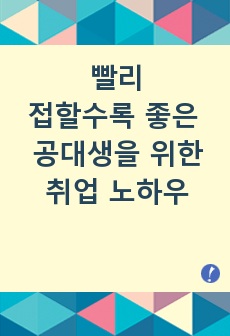성인발달장애인 직업중심 평생교육 모델에 관한 기초 연구
* 본 문서는 배포용으로 복사 및 편집이 불가합니다.
서지정보
ㆍ발행기관 : 한국발달장애학회
ㆍ수록지정보 : 발달장애연구 / 19권 / 1호
ㆍ저자명 : 강동선, 신진숙
ㆍ저자명 : 강동선, 신진숙
목차
Ⅰ. 서 론Ⅱ. 연구 방법
Ⅲ. 연구 결과
Ⅳ. 결론 및 논의
참 고 문 헌
한국어 초록
본 연구는 성인발달장애인 직업중심 평생교육의 운영영역에 따른 구성요인들을 추출하고, 그 하위요인들을 구명하여 이에 적합한 직업중심 평생교육 모델을 제시하는
데 그 목적이 있다. 이를 위하여 문헌분석과 핵심집단면담을 통하여 필요한 운영영역
과 구성요인들을 추출하였으며, 이 내용을 포함한 설문지를 만들었다. 이후 특수교육,
사회복지, 직업재활 및 치료 전문가 94명을 대상으로 델파이 1차 조사를 진행하였으
며, 델파이 1차 분석 결과를 바탕으로 문장의 구성 및 범주를 수정하였다. 확정된 설
문지에 델파이 1차 분석 결과를 제시하여 재구성한 설문지를 통해 델파이 2차 조사를
진행하고 분석하였으며, 각 구성요인의 하위요인들을 구명하여 얻은 자료들을 바탕으
로 성인발달장애인 직업중심 평생교육 모델을 제시하였다. 연구의 결과는 행정적·재
정적 지원이 이루어지는 직업중심 평생교육기관에서 지역사회기관과 네트워크를 통해
일상생활교육, 지역사회적응, 기초학습, 직업생활, 문화·여가활동 등의 프로그램을 공
동으로 구성하여 성인발달장애인의 특성을 고려한 교육방법을 통해 직업중심 평생교
육을 제공하는 것이 적절한 것으로 나타났다.
영어 초록
The purpose of this study was to extract factors of the career-basedlifelong education for the adults with developmental disability according to
the management domain, to investigate their subfactors and to suggest
career-based lifelong education model fit for these. For this, through the
analysis of literature and interview with a core group, necessary
management domains and factors were extracted, and then questionnaires
containing these contents were made. After that, the first delphi
investigation was conducted targeting 94 professionals on special education,
social welfare, vocational rehabilitation and treatment, and based on the
results of the first delphi analysis, composition and category of sentences
were modified. The second delphi investigation and analysis were carried
out through questionnaires reorganized by suggesting the results of the
first delphi analysis to the confirmed questionnaire; based on the data
obtained by studying subfactors of each factor, the career-based lifelong
education model was presented for the adults with developmental disability.
The results of this study shows it is proper that the career-based lifelong
education institutions jointly organize programs such as the daily life
education, adjustment to community, basic learning, vocational life, and
cultural and leisure activities through the network with local institutions in
the career-based lifelong education institutions receiving administrative and
financial supports and provide the career-based lifelong education through
the education method considering characteristics of adults with
developmental disability.

















